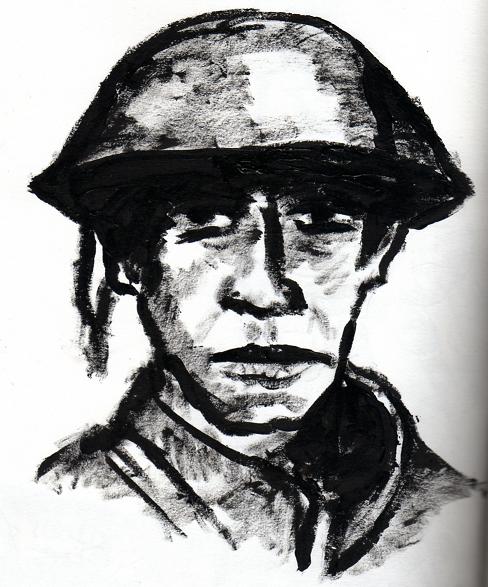One of the ways veterans try to resolve issues related to PTSD is through literature, either reading it or writing it, or in some cases both. All told, these two activities either singly or in tandem represent a journey to go beyond the pain and suffering endured by war. As the name of this website implies, it is an effort to go beyond the thousand-yard stare through the humanities.
The healing powers of literature were forged in the crucible of World War I, as nurses, doctors and volunteers grappled with treating soldiers minds as well as bodies. The word “bibliotherapy” was coined in 1914, by American author and minister Samuel McChord Crothers. Another pioneer of “literary caregiving” was British society hostess Helen Mary Gaskell who established the British War Library for soldiers in London.
The “selective silence” that reigned over society proved difficult for many veterans to break, either by choice or by submission. Sadly, no one wanted or could relate to experiences of combat and encouraged many veterans to move on with their lives and get back to normal. While the term normal is relative, the activity of using literature to resolve issues in life is not. For veterans trying to sort out their experiences related to combat in non-traditional ways, the use of paper or pen is recent. Healthcare professionals are embracing the healing potential of literature (books).
The use of literature to resolve and heal the wounds of war is dominated by three themes: disillusionment, betrayal, and lost identity. War veterans turned authors include Ernest Junger, William Faulkner, Ernest Hemingway, Erich Maria Remarque, Robert Graves and others. Starting in the 1920,s, these authors put into words what many veterans wanted to express but did not. They would be joined by J.D. Salinger, Norman Mailer, Joseph Heller, and Kurt Vonnegut in the 1950s and 1960s.
